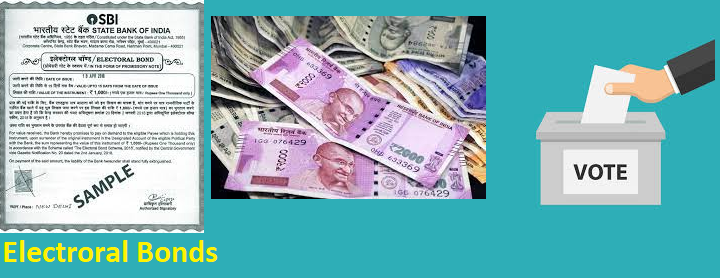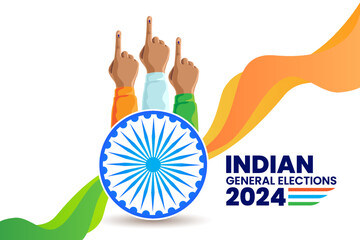Introduction
Electoral bonds have emerged as a highly contentious issue in India’s political landscape. Introduced with the intention of bringing transparency to political funding, these bonds have sparked significant debate and controversy. So, what exactly are electoral bonds, and why do they generate such polarized opinions?
What Are Electoral Bonds?
Electoral bonds are financial instruments used for donating funds to political parties. These bonds can be purchased by individuals or entities and then donated to a party of choice. The party can then redeem these bonds for money. The idea is to create a more transparent system for political donations, but the reality is much more complex.
The Genesis of Electoral Bonds
The concept of electoral bonds was first introduced in the Union Budget of 2017 by then-Finance Minister Arun Jaitley. The bonds were presented as a means to clean up the political funding system, plagued by unaccounted cash donations. The Electoral Bond Scheme 2018 was later notified, laying down the legal framework for their issuance.
How to Purchase Electoral Bonds
Purchasing electoral bonds is a straightforward process. These bonds are available for purchase at designated branches of the State Bank of India (SBI) during specified periods. They come in denominations of ₹1,000, ₹10,000, ₹1 lakh, ₹10 lakh, and ₹1 crore. Both individuals and entities, including corporations, can buy these bonds, provided they fulfill certain eligibility criteria.
Who Can Donate?
Any citizen of India or an entity incorporated or established in India is eligible to purchase electoral bonds. Foreign entities and individuals are not permitted to buy these bonds, ensuring that only domestic funds are channeled into political parties.
Anonymity and Transparency
One of the most controversial aspects of electoral bonds is the anonymity they afford to donors. While the bonds themselves are designed to promote transparency in political funding, the donor’s identity is kept secret from the public. Only the bank and the government have access to the information about the donors, leading to significant debate about the actual transparency of the system.
Advantages of Electoral Bonds
From the government’s perspective, electoral bonds offer several benefits. They reduce the reliance on cash donations, potentially curbing black money in politics. Additionally, they provide a cleaner and more structured way of donating to political parties.
Also check out : Lok Sabha Elections 2024 dates and updates
Criticisms and Concerns
Despite the potential benefits, electoral bonds have faced widespread criticism. The lack of transparency and potential for misuse are major concerns. Critics argue that the anonymity of donors could lead to unchecked corporate influence on politics, undermining democratic processes.
Legal Challenges
Electoral bonds have been the subject of several legal challenges in India. Various petitions have been filed in the Supreme Court, arguing that the scheme violates the principles of transparency and accountability. The court cases highlight the contentious nature of electoral bonds and their impact on the political system.
Impact on Political Parties
Political parties stand to gain significantly from electoral bonds, but the distribution of benefits is uneven. Larger parties tend to receive a disproportionate share of donations, potentially skewing the political playing field and exacerbating existing disparities among parties.
Public Opinion
Public opinion on electoral bonds is divided. While some see them as a necessary step towards cleaner political funding, others view them as a mechanism that could perpetuate corruption. Civil society organizations and activists have been particularly vocal in their opposition, calling for greater transparency and accountability.
Comparison with Global Practices
Electoral bonds are a relatively unique mechanism, but there are similar systems in place worldwide. For instance, the United States has its own complex system of political donations, including PACs and Super PACs. Comparing these systems reveals both differences and similarities, shedding light on how various democracies handle political funding.
The Future of Electoral Bonds
The future of electoral bonds in India remains uncertain. Potential reforms and changes to the scheme are frequently discussed, with suggestions ranging from increased transparency to complete abolition. The government’s stance will play a crucial role in determining the path forward.
Conclusion
Electoral bonds represent a bold experiment in political funding reform. While they offer a structured and potentially cleaner way to donate to political parties, the issues of transparency and potential misuse cannot be ignored. As the debate continues, it is clear that finding a balance between anonymity and accountability will be key to the future of electoral bonds in India.
FAQs
1. What are electoral bonds? Electoral bonds are financial instruments used to donate funds to political parties anonymously.
2. How do electoral bonds work? Individuals or entities can purchase electoral bonds from designated SBI branches and donate them to political parties, which can then redeem them for money.
3. What are the criticisms of electoral bonds? The main criticisms include the lack of transparency and the potential for misuse, as the identity of donors remains anonymous to the public.
4. Can foreign entities buy electoral bonds? No, only Indian citizens and entities incorporated or established in India can purchase electoral bonds.
5. What is the government’s justification for electoral bonds? The government argues that electoral bonds help reduce the reliance on cash donations and curb the influence of black money in politics.




